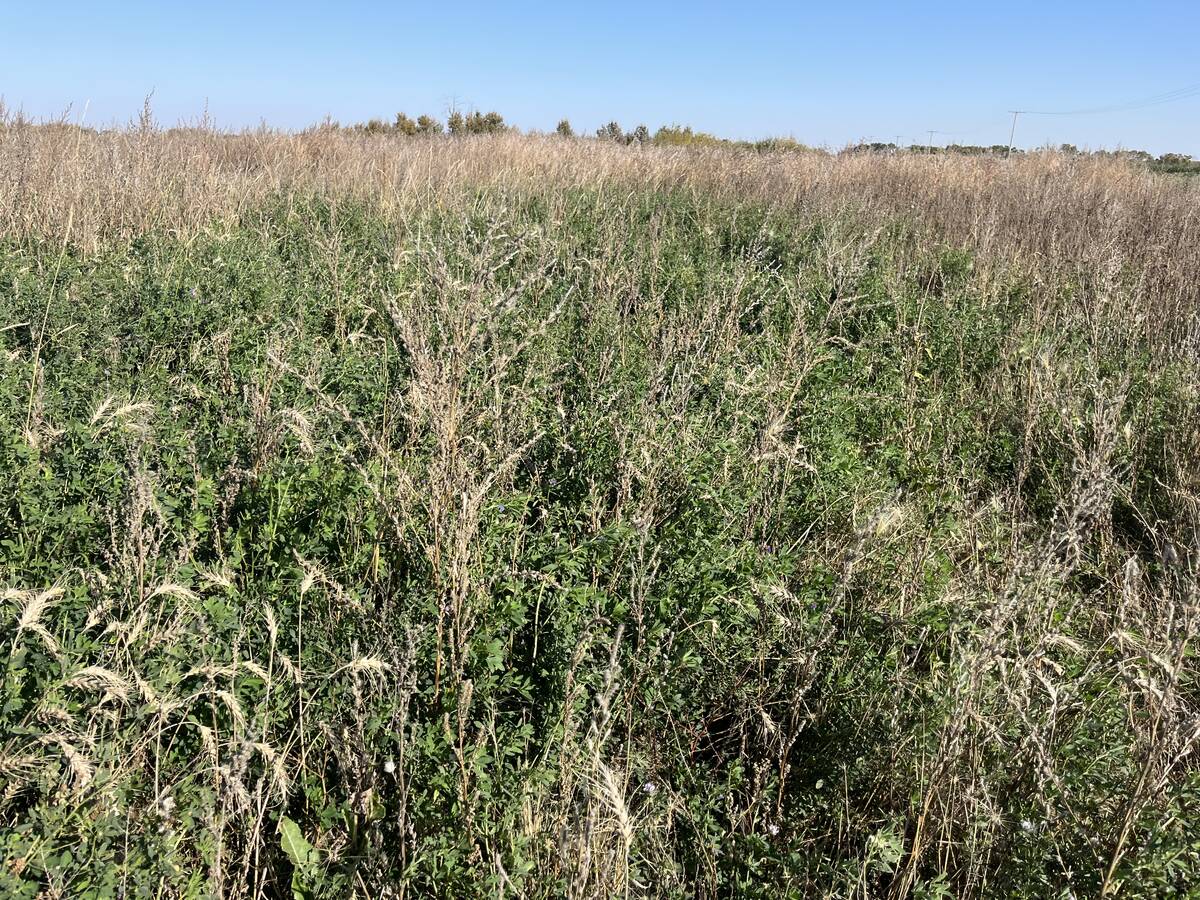JUMPING POUND, Alta. – Food safety and price are the most important considerations for Japanese beef buyers.
More BSE testing, although not scientifically necessary, could improve sales, said Tatsuo Iwana, executive director of the Japan Meat Traders Association. He was invited to speak at the Western Stock Growers summer meeting held Aug. 11.
Japan’s first case of BSE was confirmed Sept. 10, 2001, and 27 animals have since been diagnosed positive with the disease, out of six million tested. About half the confirmed cases were found when they were sent for slaughter and others were tested on farms.
Read Also

Dormant seeding forages frees up farmer time and gets ahead of weeds
Dormant seeding isn’t common practice and can appear daunting, but there are some techniques to give Manitoba farmers an edge
That first case caused Japanese consumption to dive and it has not fully recovered even after the government implemented mandatory testing of all animals. Consumption is down about 280,000 tonnes a year.
“This affected importers more than domestic producers,” Iwana said through an interpreter.
“Japan’s overall consumption of beef has been falling and pork has been growing as a substitute. Chicken is falling due to the avian flu issue,” he said.
As more BSE cases have been found, public concern is receding about their fears of being infected with variant Creutzfeldt Jakob disease after eating contaminated beef.
“Even if it’s not scientific, Japanese consumers have full confidence because of testing for BSE,” he said.
Mandatory testing of animals younger than 20 months will end in two years. The Japanese set this age threshold because two of its cases were found in 20-month-old animals.
Trade resumed with Canada and the United States last December. The U.S. lost its access a month later when spinal cord material was discovered in a shipment of veal from a New York processor. Trade resumed July 27, but confidence in the American product is low.
Canada has remained a low profile supplier and consumers have indicated confidence in Canadian beef. However, if more BSE appears in cattle born after the feed ban, the Japanese media could turn its attention toward Canada and markets could be lost.
Iwana said Canada was wise to implement a ban on all specified risk material going into any type of animal feed. However, he suggested all meat and bone meal should be prohibited from livestock and poultry rations.
As for increasing Canadian beef sales to Japan, there is no easy solution.
Consumers would welcome 100 percent testing of North American beef but they want the meat to remain affordable, said Iwana.
During a question period, Iwana agreed Japan may be willing to accept beef derived from cattle of all ages if universal testing existed, but people are not willing to pay much more for guaranteed BSE-free meat.
Canada relies on birth certificates to verify the age of cattle; the U.S. measures physiological maturity using a grading program.
“Many people feel that is something we should have so we have both routes, just like the U.S. does, to demonstrate that animal is under 20 months,” said technical services adviser Mike Klassen.















